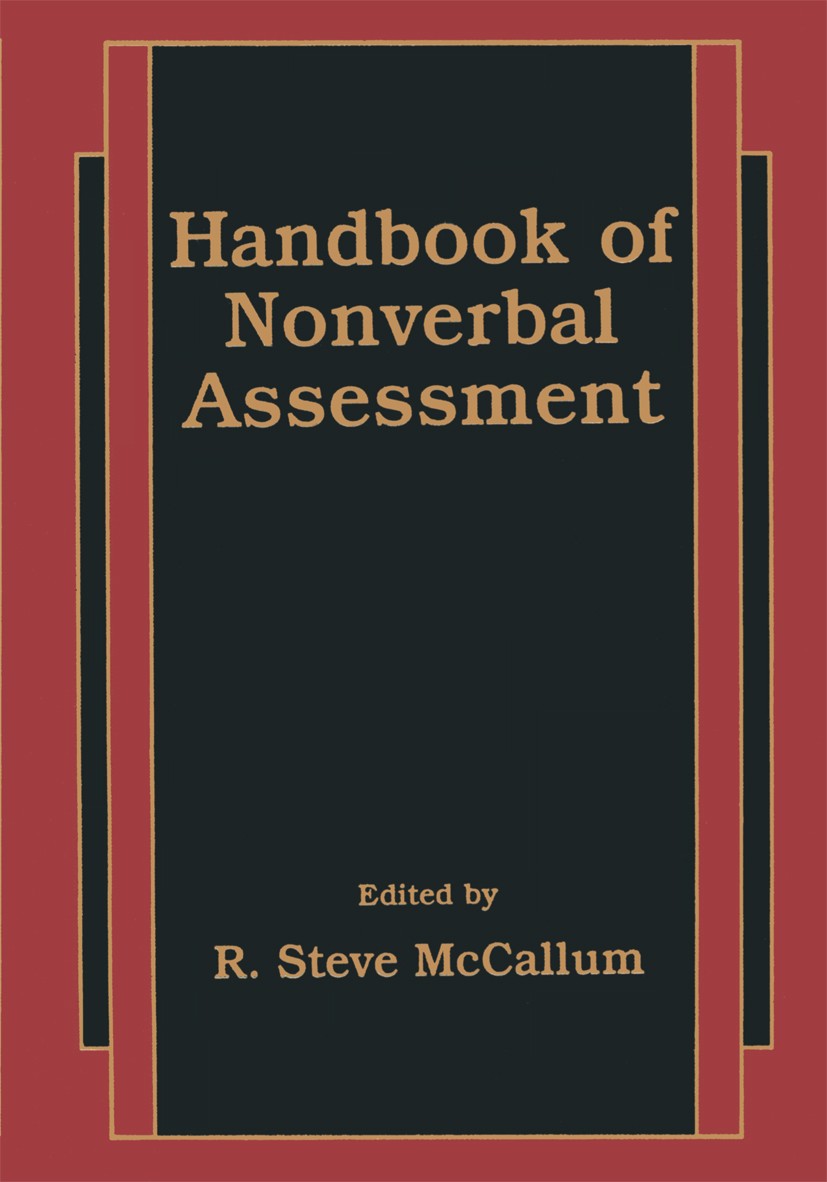| 书目名称 | Handbook of Nonverbal Assessment | | 编辑 | R. Steve McCallum | | 视频video | http://file.papertrans.cn/422/421789/421789.mp4 | | 概述 | Describes the current assessment strategies and related best practices to professionals who serve individuals from diverse cultures or those who have difficulty using the English language | | 图书封面 |  | | 描述 | Psychologists, educators, and related health care professionals spend an enormous amount of time and energy evaluating the abilities of children and adults they serve. Assessment may be tailored to determine cognitive strengths and weaknesses, academic progress, the effects of central nerv ous system trauma, personality, and so on. For many children and adults, traditional verbally laden instruments cannot be used. For example, indi viduals who have speech and/or language defiCits, hearing impairments, emotional problems, and those from other cultures, cannot be evaluated with tests that rely on standard English. Our culture is becoming increas ingly diverse; as a result, schools and mental-health professionals are required to serve an increasingly large community of nontraditional learn ers. Because many of these individuals cannot be evaluated fairly by language-loaded tests, there is a need to use techniques and tools that are language free or can be adapted or modified to minimize the effect of language. For these individuals, language is a barrier to assessment rather than a vehicle. The primary goal for the contributors to the Handbook oj Nonverbal Assessment is to descri | | 出版日期 | Book 20031st edition | | 关键词 | cognition; intelligence; language; psychology; rehabilitation; school psychology | | 版次 | 1 | | doi | https://doi.org/10.1007/978-1-4615-0153-4 | | isbn_softcover | 978-1-4613-4945-7 | | isbn_ebook | 978-1-4615-0153-4 | | copyright | Kluwer Academic/Plenum Publishers, New York 2003 |
The information of publication is updating

|
|
 |Archiver|手机版|小黑屋|
派博传思国际
( 京公网安备110108008328)
GMT+8, 2026-1-1 21:32
|Archiver|手机版|小黑屋|
派博传思国际
( 京公网安备110108008328)
GMT+8, 2026-1-1 21:32


